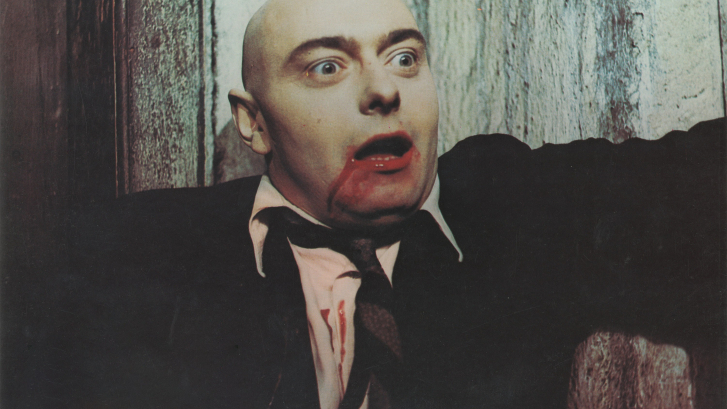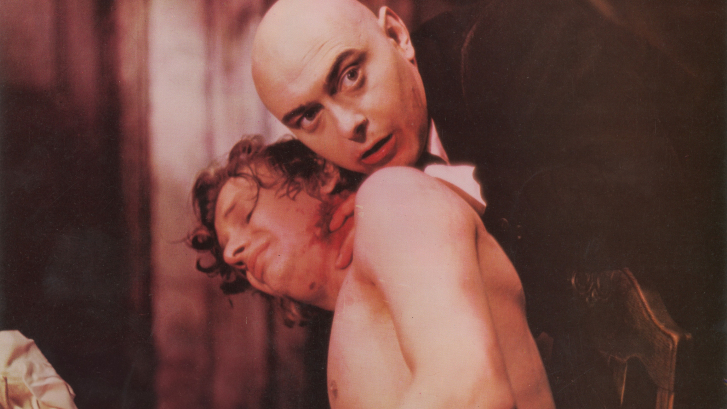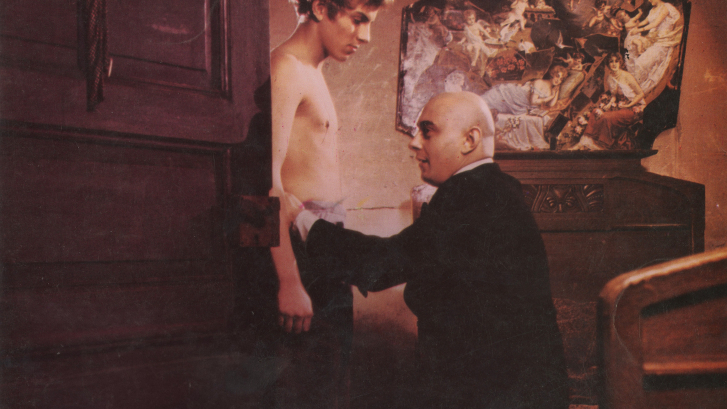Die Zärtlichkeit der Wölfe

In the post-war Ruhr region, Fritz Haarmann, who has a long criminal record, is recruited as a police informant. He uses that to pose as a detective and pick up young boys, offering them a place to stay in his garret – where he proceeds to molest them, kill them with a bite to the neck and dismember their bodies. The meat and sausages he makes from them enhance his popularity in the neighbourhood, a restaurant, and a circle of friends made up of black marketeers, pimps and prostitutes. Police inspector Braun also enjoys the edible gifts he receives from his confidential informant. That is until, while he is on the trail of a missing young man, one of Haarmann’s neighbours gives him a lead …
When he was talking to Ulli Lommel about Kurt Raab’s script and suggested that he direct it as “a thriller with lots of blood”, Rainer Werner Fassbinder pitched the idea as “a combination of Fritz Lang’s M and Hitchcock’s Psycho”. With no interest in the actual historical facts about the real Haarmann, a serial killer executed in 1925, Raab plays him as a combined revenant of Peter Lorre and Max Schreck’s Nosferatu – in a film that references the expressionistic shadows of Weimar-era cinema.
details
-
Runtime
82 min -
Year of Presentation
2025 -
Year of Production
1973 -
Director
Ulli Lommel -
Cast
Kurt Raab, Jeff Roden, Margit Carstensen, Ingrid Caven, Wolfgang Schenck, Brigitte Mira, Rainer Hauer, Barbara Bertram, Rainer Werner Fassbinder, Heinrich Giskes -
Production Company
Tango-Film, München -
Berlinale Section
Retrospective -
Berlinale Category
Feature Film
pictures from the movie
Biography Rainer Werner Fassbinder
Born in Bad Wörishofen on 31.5.1945, he died in Munich on 10.6.1982. He began making films and stage plays in Munich in 1966/67. He directed his first feature film in 1969. An actor, dramatist, radio playwright and producer, he was the most productive force in New German Cinema. Today, all rights to Fassbinder’s works are owned by the Rainer Werner Fassbinder Foundation. The foundation’s aim is to preserve and disseminate the director’s comprehensive oeuvre.

